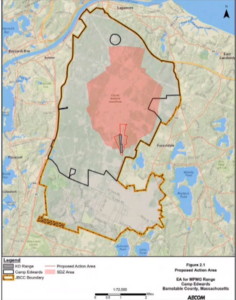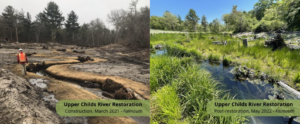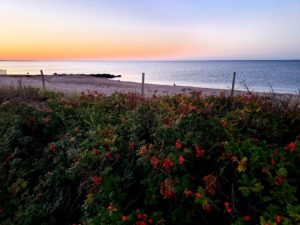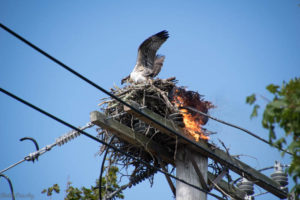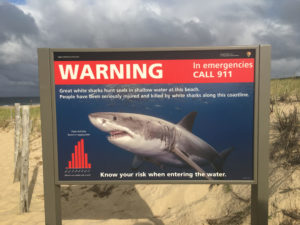
FALMOUTH – New research is shedding light on the growing seal and white shark populations off of Cape Cod—and the relationship local residents, fishermen and tourists have with the marine animals.
“This research would serve Cape visitors, voters and members of the fishing community to help to create a foundation for communicating about conserving wildlife and reducing negative human interactions with white sharks and seals,” said Jennie Rheuban, Research Coordinator with the Woods Hole Sea Grant—which funded the study.
Agencies involved in the study include the Atlantic White Shark Conservancy, the Cape Cod Commercial Fishermen’s Alliance and the Center for Coastal Studies.
Researcher Dr. Andrew Bogomolni said the project aims to help break down the informational barriers separating the community of Cape Cod and the “wilderness” of the marine ecosystem that residents and visitors alike flock to every summer season.
Bogomolni said human activity saw shark and seal populations drastically decline decades ago, though wildlife protections passed in recent years are causing both species to rebound in number.
However, she added that the return of ecological balance may not feel very normal for residents who have grown up with few to no white sharks just off the coast.
“We are beginning to see the signs of return. While encouraging, this new reality—this re-wilding—also means very few in living memory have actually seen what a healthy, productive Northwest Atlantic looks like,” said Bogomolni.
“Now, with seals and shark populations rebounding, we on Cape Cod and elsewhere are discovering what it means to share a coastline with these large predators, in a place where these animals call home.”
Though sharks can bring with them fear and anxiety for beachgoers, the rebound has also brought with it new economic opportunity as seal and shark tours sell out region-wide as humans learn to coexist with the animals, said Bogomolni.
The study specifically looked at the knowledge and beliefs stakeholders currently hold about the animals, how they perceive conservation efforts, and build communication channels for public safety outreach.
Dr. Jennifer Jackman, principal investigator for the study, said residents, fishermen and tourist samples were surveyed in order to gather the data for the research.
She said results showed most respondents share common beliefs that ocean wildlife should be protected and are ready to take on some form of inconvenience if it means the continued protection of the animals off the coast.
“Overall there is a trend in all three stakeholder groups on Cape Cod that there is more of a protection-oriented view than a use-orientation. That’s an important foundation,” said Jackman.
Among the three stakeholder groups, tourists were the most likely to rate ecosystem protection as a top management priority, though all three groups overall favored ecosystem management.
Other notable highlights of the study include less than half of respondents knowing that fishing activities depleted shark populations, and that fewer than 40 percent of commercial fishers see seals as important to the ecosystem compared to more than 70 percent of voters and tourists.
The full report can be found here.






